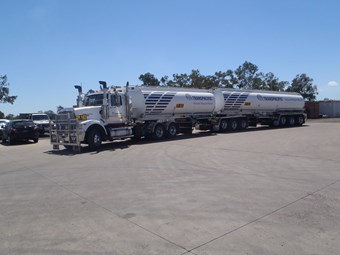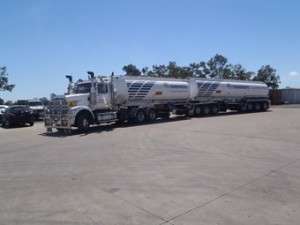Fatal Accident Led to Review of Fleet Policy and Procedures
Sometimes it takes a tragedy to implement change especially where road safety is concerned. That is the case of waste management firm Transpacific who have grounded their fleet and initiated fleet management reform.
Fleet policy and procedures within the company are now being reviewed and major inspections are being carried out after an incident with one of their trucks took place which claimed the lives of 2 people and caused another 4 to sustain injuries. The accident happened on the South Eastern Freeway in Adelaide in August this year.
The waste management firm, Transpacific recently made public information relating to the grounding of its fleet following a tragedy that happened in Adelaide earlier this year. The cost of this move by the company has not yet come to light.
The waste management company decided to take its entire fleet off the road for inspections following the deaths of 2 people when one of its trucks lost control on Adelaide’s South Eastern Freeway.
Following the crash reports said the truck responsible had been travelling at 151km/h at the time. The accident prompted the state government to review truck speed limits and consider what it could do to avoid such incidents in the future.
At the time of the accident, Road Safety Minister Tony Piccolo had said that all road users would now be limited to a maximum freeway speed of 90 kph on the descent into Adelaide, a stretch of road notorious for vehicle crashes.
He said the maximum speed for light vehicles between the Stirling interchange and the lower arrester bed would be reduced from 100kph to 90kph.
It has now emerged in a coronial inquiry into the crash that the speed limit for trucks travelling down the descent would likely be lowered to 40kph at the suggestion of SARTA.
The CEO of the company Bob Boucher made the following statement to shareholders during the firm’s annual general meeting:
“During this period, over 2,000 heavy duty vehicles underwent safety inspections by qualified personnel and independent consultants,”
Only when the vehicles were deemed to be roadworthy in accordance with relevant regulations were they allowed to recommence operation.
“We have reviewed our policies and procedures in relation to the maintenance and read safety and are implementing improvements in the key areas of asset management, fleet maintenance and driver safety.”
Source: http://www.fullyloaded.com.au
According to the company’s chairman Martin Hudson, the entire board were unanimous in their decision to ground the fleet completely until the inspections were complete. He said that the company was still trying to evaluate the financial impact this decision would have on them.
He also noted that the firm’s Total Recordable Injury Frequency Rate, a safety measure companies quote frequently, was down 33 per cent following last year’s reduction of 47 per cent.
Despite the company making note of their improved safety record, the fatal crash as well as the grounding of its fleet will undoubtedly have an enormous impact on the company financially. This should serve as a warning to other companies about the importance of fleet maintenance and need for adherence to Chain of Responsibility legislation.




